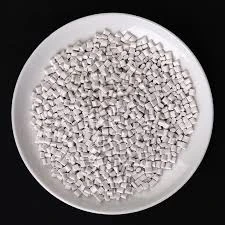The Importance of Micronutrients and the Role of Supplements
Micronutrients, including vitamins and minerals, are essential nutrients that our bodies need in small amounts to function optimally. Unlike macronutrients (proteins, fats, and carbohydrates), which are required in larger quantities, micronutrients are critical for maintaining various bodily functions, growth, and development. While a balanced diet can often provide the necessary micronutrients, many people find it challenging to meet their nutritional needs through food alone. This is where micronutrient supplements come into play.
Why Micronutrients Matter
Micronutrients play a vital role in various bodily functions. For instance, vitamins such as Vitamin A support vision and immune function, while Vitamin D is crucial for bone health. Minerals like calcium and magnesium contribute to bone structure and muscle function. Each micronutrient has its specific functions and benefits, making it important to obtain a variety. A deficiency in any particular micronutrient can lead to health issues. For example, a lack of Vitamin C can result in scurvy, while insufficient iron can lead to anemia.
Common Micronutrient Deficiencies
Micronutrient deficiencies are not uncommon and can affect people of all age groups. A global report by WHO indicated that deficiencies in vitamins A, D, E, B12, and folate, as well as minerals like iron and iodine, are prevalent, particularly in developing countries. However, developed countries are not immune. Poor dietary choices, lifestyle factors, and health conditions can contribute to lower micronutrient intake leading to deficiencies. For example, vegetarians may struggle with iron and Vitamin B12 intake, while individuals with lactose intolerance might lack calcium.
The Role of Supplements
Supplements can help bridge the gap between dietary intake and the body's nutritional requirements, especially for individuals who may face challenges in achieving a balanced diet. Micronutrient supplements come in various forms, including pills, powders, and liquids, and can provide concentrated doses of essential vitamins and minerals.
However, it’s crucial to remember that supplements should not completely replace a balanced diet. Whole foods offer a complex matrix of nutrients, fiber, and beneficial compounds that supplements cannot replicate. Moreover, the body may absorb nutrients more efficiently from food than in supplement form.
micronutrients supplements

Choosing the Right Supplements
If you find yourself considering micronutrient supplements, it’s essential to choose wisely. Here are some tips to help you make informed decisions
1. Consult a Healthcare Professional Before starting any supplement regimen, consult with a healthcare provider or a registered dietitian. They can assess your dietary habits, lifestyle, and health conditions to determine if you have any deficiencies.
2. Opt for Quality over Quantity Not all supplements are created equal. Look for products that have been tested for purity and potency, preferably from reputable manufacturers. Certifications from third-party organizations can indicate quality.
3. Individual Needs Matter Everyone’s nutritional needs are different. Factors such as age, sex, health status, and lifestyle can affect your micronutrient requirements. Tailor your supplement regimen accordingly.
4. Focus on Whole Foods Whenever possible, obtain your micronutrients from whole foods. Incorporate a variety of fruits, vegetables, whole grains, lean proteins, and healthy fats into your diet to ensure a well-rounded intake of nutrients.
5. Be Cautious with Dosages More isn’t always better when it comes to supplements. Excessive intake of certain vitamins and minerals can lead to toxicity and adverse health effects. Stick to recommended dosages unless advised otherwise by a healthcare professional.
Conclusion
Micronutrients are crucial for our overall health, and supplements can be a valuable tool in ensuring we meet our nutritional needs. However, they should be used judiciously and as a complement to a balanced diet rather than a substitute. By making informed choices and prioritizing whole foods, individuals can achieve optimal health and well-being while effectively managing their micronutrient intake. Remember, nutrition is an essential part of a healthy lifestyle, and understanding the role of micronutrients is fundamental in fostering long-term health.

